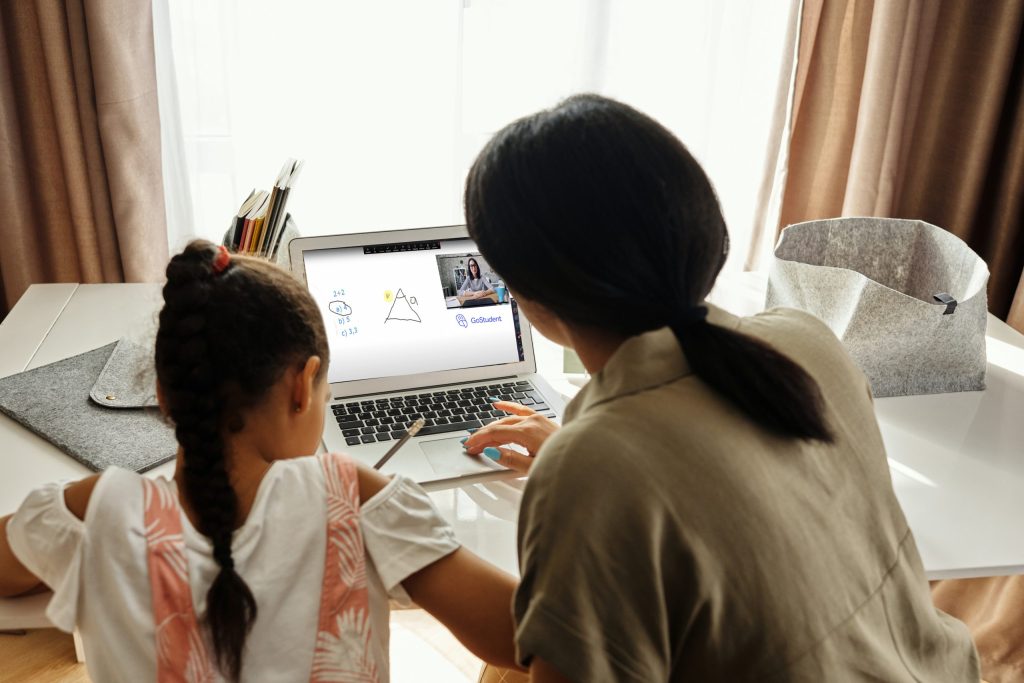Alors que l’utilisation des nouvelles technologies dans l’éducation fait débat, GoStudent révèle dans sa dernière étude que les élèves âgés de 14 à 16 ans aujourd’hui comptent sur elles pour apprendre demain.
- 57 % des jeunes aimeraient apprendre grâce à l’IA dans les 5 prochaines années
- 74 % affirment que l’utilisation de nouvelles technologies facilite l’apprentissage
- 58 % des jeunes qui ont entendu parler du métavers pensent qu’apprendre dans un monde virtuel serait plus efficace
Communiqué – Alors que l’explosion récente de générateurs de contenus comme ChatGPT crée la controverse dans le milieu de l’enseignement, GoStudent a récemment publié les résultats de son étude sur l’Education du Futur* pour partager le point de vue sur les nouvelles technologies de plus de 6 000 élèves interrogés à travers l’Europe dont 1 000 en France.
Intelligence artificielle, métavers : les élèves en France prêts à les adopter !
Depuis la crise sanitaire qui a modifié les habitudes d’apprentissage en intégrant de nouveaux outils numériques, les élèves semblent ne pas souhaiter de retour en arrière. Au contraire, ils comptent désormais sur les avancées technologiques telles que l’IA ou le métavers pour opérer une révolution numérique à l’école.
L’étude GoStudent révèle que près d’un jeune sur deux âgés de 14 à 16 ans en France (48 %) pense que l’éducation aura considérablement évolué grâce à l’IA d’ici à 2050. Un des taux les plus élevés en Europe (44 % en moyenne) et considérablement au-dessus de certains pays comme l’Italie où seulement 20 % le pensent.
À plus court terme, plus de la moitié des élèves de 14 à 16 ans en France (57 %) affirment qu’ils aimeraient que leur école utilise davantage d’intelligence artificielle dans les cinq prochaines années. Un engouement qui s’illustre notamment dans le domaine de l’apprentissage adaptatif qui grâce à l’IA permet de développer des programmes intelligents capables de proposer des exercices en fonction du niveau de chaque enfant.
Plus d’interactivité et des cours davantage personnalisés, c’est ce que semble rechercher la Gen Z qui affirme à 74 % que la technologie rendrait l’apprentissage plus facile.
Et quand on leur demande à quoi ressemblera l’éducation du futur, les jeunes lui accordent de nouveau une place majeure :
« On apprendra avec une tablette par commande vocale », réagit Ethan.
« On pourra tous être dans la même classe, mais le professeur pourra faire un programme spécial pour chaque élève », ajoute Emma.
« À moins que ce ne soit des robots-tablettes qui nous fassent cours…», s’interroge Gaspard.
Car étudier dans une classe virtuelle ne paraît pas surréaliste pour ces jeunes qui pensent à 40 % que le métavers pourrait un jour totalement remplacer la salle de classe.
Apprendre dans le métavers serait plus efficace selon la Gen Z
Conscient du potentiel et des opportunités que peuvent offrir ces outils, 75 % des élèves en France aimeraient que leur école intègre davantage de nouvelles technologies dans leur scolarité. Au-delà du côté ludique, pour ceux qui ont déjà entendu parler du métavers, 6 jeunes sur 10 pensent qu’apprendre dans un monde virtuel serait même plus efficace (58 %).
Un engouement pour ce nouvel univers, qui contrairement à ce que pourraient penser les parents, attirent les jeunes pour sa dimension éducative. L’étude révèle que les jeunes de 14 à 16 ans en France voient dans cette technologie quasiment autant de potentiel pour apprendre que pour jouer à des jeux vidéo. Une adhésion pas totalement partagée par les parents en France qui se classent, eux, parmi les derniers d’Europe en faveur de l’adoption du métavers dans l’éducation (64 % contre 78 % en Espagne).
« Les expériences de réalité virtuelle sont de plus en plus populaires et les parents craignent souvent que leur adolescent ne devienne dépendant aux jeux vidéo. Pourtant, les élèves déclarent s’intéresser autant au métavers pour apprendre que pour jouer, et c’est une occasion que nous ne pouvons pas manquer. Rendons nos enfants accros à l’apprentissage! », confie Alexander Nick, chargé de développer de nouvelles expériences d’apprentissage digitales au sein du Future Labs chez GoStudent.
Plus interactif, plus captivant ou juste plus dans l’ère du temps ?
Pour Laura Warnier, directrice de la croissance chez GoStudent, il s’agit là d’une opportunité pour redonner goût à l’apprentissage, grâce à des moyens plus en adéquation avec cette génération.
« Notre étude révèle qu’un tiers des jeunes à travers l’Europe ont du mal à se concentrer quand ils étudient, car ils trouvent le programme scolaire ennuyeux. En France, cela concerne 38 % des élèves interrogés. En proposant des solutions d’apprentissage innovantes comme nous le faisons chez GoStudent, nous redonnons de l’intérêt à ces jeunes qui se préparent aussi à vivre dans un monde de plus en plus lié aux nouvelles technologies. »
Une demande claire de plus d’adoption de nouvelles technologies dans la scolarité qui contraste avec la réalité. Aujourd’hui, seuls 8 % des enfants interrogés utilisent l’IA pour apprendre à l’école et seulement 45 % des élèves en France diraient que leurs professeurs sont suffisamment entraînés et les encouragent à apprendre avec la technologie.
*L’étude a été menée en partenariat avec Opinium auprès d’un panel représentatif de 1 000 parents et 1000 enfants âgés de 10 à 16 ans en France entre le 28 octobre et le 21 novembre 2022.
Source : Communiqué de presse






